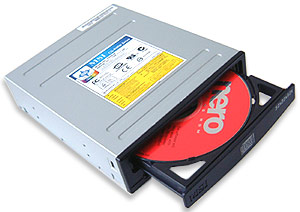 Backing up your software legally
Backing up your software legally
STEP 1: READ THE EULA!
This step cannot be stressed
enough. Since software is governed not only by copyright law but also by the
contract that you agree to when you accept the EULA, make sure you know what is
there. Too many people simply accept the EULA without reading it, even in
business environments, opening themselves up to legal problems.
STEP 2: Making an archival copy
Unless it is specifically prohibited by the EULA
(very unlikely) you may make a single backup copy of any software you have
purchased.
This backup is
for archival purposes, and may only be used if your original purchased copy
is no longer functional, as CDs still suffer badly when scratched. For the same
reason, this backup must be destroyed if you transfer the original software to
another owner. If you are unable to successfully create a working backup copy of
your software due to copy protection measures, see step 3.
STEP 3: What if you can't make a working copy?
If you
are unable to make a useable copy of your software, chances are it is secured by
some form of copy protection. In the United States, this falls under the Digital
Millennium Copyright Act, which among other things makes it illegal to attempt
to bypass or defeat copy protection that has been instituted by the copyright
holder. At the time of writing, no legal recourse exists for making archival
copies of your software.
Efforts to change this portion of the DMCA are already underway from
various lobby groups.
STEP 4: Other
measures
Commercial software generally
includes a warranty, the same as any other product. Though the terms will vary
depending on the package, these generally provide for replacement of the
software media (CD) and/or a refund from the point of purchase, providing all
original packaging is returned. Of course, warranties are never easy to claim...
If you are concerned about not being able to backup your expensive software,
contacting the publisher is really your only current recourse other than
violating copyright.
Freeware and Shareware
software is still governed by copyright, though special permissions given by
the authors of the software may affect this. For example, shareware is still
commercial software and is governed by all the rules of copyright that are applicable to
commercial software; however, the EULA of a shareware program will generally state that the user
is free to use and distribute the unlicensed version of the software
in question for a certain period, after which he or she must purchase it to go
on using it legally, and it becomes identical to any other purchased
software.
Freeware programs may be shared publicly, but may or
may not allow the user to alter the original source code, and if they do not,
then this is subject to copyright. Use common sense and READ THE
EULA.

